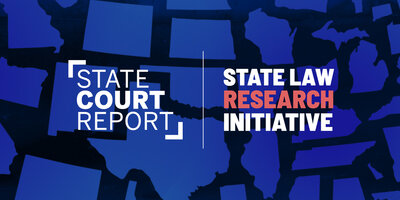
State Constitutions and the Limits of Criminal Punishments
Rutgers Law School
217 N 5 Street
Camden, NJ 08102
Decades of harsh sentencing practices have made the United States the world’s number one incarcerator. This symposium will engage with the growing legal and intellectual movement to challenge excessive criminal punishments — broadly understood to include both prison terms and conditions of confinement — via state constitutional prohibitions on cruel and unusual punishments and related clauses. The symposium will explore the interplay between state and federal law and the power of state courts to use the text, history, traditions, and unique policy goals of their own constitutions to emerge from federal law’s shadow and impose meaningful restraints on extreme sentencing, create a more humane legal system, and reduce mass incarceration.
In-person and virtual registration options are available.
Produced in partnership with the Brennan Center for Justice and the State Law Research Initiative
Agenda
Breakfast
8:30 – 9:30 a.m.
Keynote and Introduction
9:00 – 9:45 a.m.
David Shapiro, Executive Director, Chicago Lawyers’ Committee for Civil Rights
Robert F. Williams, Distinguished Professor of Law Emeritus, Rutgers Law School
Substantive Rights and Prison Terms
9:45 – 11:00 a.m.
Panelists will discuss legal strategies for limiting excessive criminal sentences; explore unique state constitutional clauses such as rights to “dignity” and against “unnecessary rigor”; theorize on what “cruel” and “unusual” mean in the state constitutional context and how such concepts might be applied; question the limits of “death is different” constitutional protections and doctrinal silos that separate harsh conditions and collateral consequences from “sentences”; and explore the relationship between state constitutional rights and empirical evidence about the purposes and efficacy of criminal punishment.
William W. Berry III, Associate Dean for Research, Montague Professor of Law, University of Mississippi School of Law
Salil Dudani, Senior Attorney, Civil Rights Corp
Emily Hughes, Edward F. Howrey Professor of Law, University of Iowa College of Law
Maya Menlo, Assistant Defender, Michigan State Appellate Defender Office
Moderator: Kyle C. Barry, Director, State Law Research Initiative
“A View From the Bench:” Excessive Sentencing
11:15 a.m. – 12:30 p.m.
Hon. Goodwin Liu, Associate Justice, Supreme Court of California
Hon. Scott L. Kafker, Associate Justice, Massachusetts Supreme Judicial Court
Hon. Rowan D. Wilson, Chief Judge, New York Court of Appeals
Moderator: Alicia Bannon, Director of Judiciary Program, Brennan Center
Lunch
12:30 – 1:30 p.m.
The Problem Punishment Poses for Democratic Orders: Ruination and Rights
1:45 – 2:15 p.m.
Judith Resnik, Arthur Liman Professor of Law, Yale Law School
Substantive Rights and Prison Conditions
2:30 – 3:45 p.m.
Panelists will explore how state constitutions can improve conditions of incarceration. They will address questions including: Can state constitutions ban or severely limit solitary confinement? Is release from confinement a remedy for intolerable conditions? What flaws or limitations in federal doctrine can state constitutional jurisprudence correct?
Kristen Bell, Assistant Professor of Law, University of Oregon School of Law
Meredith Esser, Assistant Professor of Law, Director of Defender Aid Clinic, Wyoming College of Law
Kasia Szymborski Wolfkot, Senior Counsel, Managing Editor of State Court Report, Brennan Center
Tara Herivel, Attorney at Law, Portland, Oregon
Moderator: Megha Ram, Supreme Court and Appellate Counsel, MacArthur Justice Center
Barriers to Rights Protections
4:00 – 5:15 p.m.
Panelists will explore barriers to vindicating and developing substantive rights, along with ways to overcome them, including the role of courts, legislatures, and the executive. Topics will include access to counsel, procedural bars to collateral review, prosecutor-led conviction integrity review units, the Prison Litigation Reform Act and state cognates, and Section 1983 and state equivalents that create private rights of action.
Eli Savit, Prosecuting Attorney, Washtenaw County, Michigan
Rebecca Uwakwe, Senior Staff Attorney, ACLU of New Jersey
Marcus Gadson, Assistant Professor of Law, Campbell University
Moderator: Hernandez D. Stroud, Senior Counsel, Justice Program, Brennan Center
Closing Remarks
5:15 – 5:30 p.m.
Robert F. Williams, Distinguished Professor of Law Emeritus, Rutgers Law School


